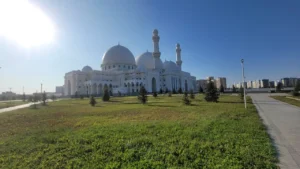Effects of Solar Panel on Environment in Pakistan

There are few basic needs of humans listed by scholars and scientists. Energy has been one of the basic needs for living. All living beings need energy. Humans have been using it since known history. Every passing day the need has been escalating, this increase in demand for energy has surpassed the needs for other basic needs like food, water, shelter. Advent of technology and industrialization has increased the need of energy many folds. To overcome this shortcoming of energy humans have been devising various means for production of energy. Most of the means have been conflicting with the nature’s way of doing things. i.e dams need huge land, render adjacent land saline, nuclear produces dangerous waste, fossil fuel produces CO2 and wind turbines are high maintenance. Most of the industrialization and production of energy for industrialization produced greenhouse gases and damaged ozone. This invited more problems in the shape of climate change, rise in temperature and diseases.
Our country was worst effected by shortage of electricity in 2008, then after 2014 government fetched various types of power houses and Pakistan went surplus. Now we are in a trap of paying for electricity which is not produced. But Pakistani nation has always been resilient, steering its way out of problems created by mismanagement of government. As a nation, in power sector we went from UPS, generators and now solar with net metering. Solar has emerged as a new source of producing clean and cheap energy. If we travel in the length and width of country we see solar plates almost on every roof. Most of the tube wells irrigating agricultural lands, shops, fuel pumps etc are run on solar in villages.
Pakistan has become third largest importer of solar panels in the world. Keeping the manufacturing process aside, which is not as bad as producing and burning the fossil fuel, solar is the cleanest source of energy. It produces no noise, no smoke, no CO2, no greenhouse gases and very less maintenance. There are numerous benefits, these include benefits for the environment also.
Solar panels on the roof overcomes engineering fault in construction. Pakistan has extreme weather, temperature falling to below zero in winters and hitting 50 plus in summers. Concrete construction does not seem to be suitable for this region. This use of concreate has increased our energy needs for cooling and heating the building. In scorching summers the sun bakes our concrete roofs at 50 degree for 12 hours and in the night same roof emits that heat back to environment. Now with the solar plates on roofs, roofs are not directly in the sun, due to which temperature of the roof has slighted lower. This low temperature has reduced the amount of energy needed to cool the building. This is making use of natural energy for own good. Then there is no heat at the night too.
Solar is the minuscule possible decentralized system of electricity production. It produces power right where it is needed. It does not involve any transmission, maintenance, hefty power lines, metering and billing. This cuts off so many expenses making solar beneficial for government as well as citizens. In fact this is more beneficial for the government as its responsibility to provide electricity to its citizens has reduced, in addition government gets extra electricity at very meager cost with no effort at all.
No hazardous Emissions. Solar panels have no hazardous emissions for the environment, known so far. The amount of electricity it produces is clean with no CO2 footprint. It does not produce CO2 and in turn it also reduces the need for electricity produced by fossil fuel. So this all effects the climate change in positive way. Solar is giving time to earth to refit its environment and ozone.
It is also known that extracting, producing, transmitting, storing and using fossil fuel is all polluting process for environment and land, all along. The raw material used in solar panels is silicon which is second largest element available on planet earth. Manufacturing solar cell also involves use of boron and phosphorus, but the quantity used in solar manufacturing is very less as this element is already used in manufacturing glass, fiberglass, washing products, alloys and metals, fertilizers, wood treatments, insecticides, and microbicides. Phosphorus is used in fertilizers, animal feeds, rust removers, corrosion preventers, and even dishwasher tablets. So these elements are already being used in manufacturing industry. Even if no solar panel is produced these elements are already being released to environment. In case of solar panels these two elements are used to coat the silicon wafer, which is very small quantity.
Burning fossil fuel produces nitrous oxides, sulfur dioxide, and particulate matter emissions, these matters create health issues for humans, especially respiratory and cardiovascular problems in the shape of chronic bronchitis. Installing and using solar for power production cuts emission of these dangerous elements to atmosphere.
Solar panels reduce the production of greenhouse gases like carbon dioxide and methane. Average house hold use of electricity is 2469 kw/h/year in Pakistan, once this house goes solar it is like planting 70 trees every year and protecting environment from burning of tons of coal.
Pakistan is the third largest importer of solar in the world after US and Vietnam. We already see almost 50% roof tops covered with solar panels. These are becoming common view of skyline in our country. Reduction of temperature of buildings, less emission of heat at night by the roofs, less need for fossil produced electricity and reduction in greenhouse gases to environment is definitely going to affect our environment and atmosphere in Pakistan.
There can be many factors contributing to the reduced duration of harsh summers this year but solar has also a role in this. It can be expected that there will be pronounced observable change in weather in Pakistan as the solar goes to more roofs.


